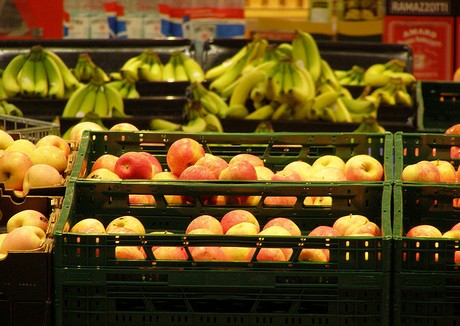What Are Vitamins?
A vitamin is an organic compound needed by organisms in tiny amounts as a required nutrient. These must be obtained from the diet as organisms cannot produce them in sufficient quantities. The term does not include other vital nutrients such as essential fatty acids, dietary minerals or essential amino acids (which are generally needed in larger amounts than vitamins). Vitamins are categorized based on their chemical and biological activities and not on their structure. This means that every type of vitamin refers to a certain number of vitamer compounds related to the biological activity that is associated with a particular vitamin. Vitamers are convertible to the active form of vitamin in the body and are also usually inter-convertible to one another.
Vitamins have different biochemical functions and includes hormone-like functions as mineral metabolism regulators (vitamin D) and regulators of cell and tissue differentiation and growth (vitamin A). Some vitamins function as antioxidants like vitamin E and vitamin C in most cases.
The B complex vitamins, which are the largest group of vitamins, function as precursors for enzyme cofactors, which give aid to enzymes in their work as metabolism’s catalysts. Such roles makes vitamins tightly bound to enzymes as part of prosthetic groups. For instance, biotin is part of the enzymes that are involved in the production of fatty acids. Vitamins can also be less tightly bound to enzyme catalysts as coenzymes, molecules that are detachable and functions as carrier of electrons or chemical groups between molecules. For example, various forms of carbon group –such as formyl, methylene and methyl—are carried by folic acid in the cell. Although such roles in the enzyme-substrate reactions’ assistance are vitamins’ best known functions, there are several other functions of vitamins that are equally important.

Types Of Vitamins
There are two main types of vitamins: fat soluble, and water soluble vitamins. The vitamins’ solubility shows how the human body can adjust and manage to use them.
Fat Soluble Vitamins
The fat soluble vitamins are vitamins A, D, E and K; which are mostly found in foods that contain oils and fats. Fat soluble vitamins are stored in the body and absorbed in the intestine. Vitamin A can be obtained from eating liver and fat-containing dairy products. It helps a great deal in the eyesight improvement and also helps in keeping a healthy skin. Some of the rich sources of vitamin A include carrots, apricots, milk, sweet potatoes and eggs.
Vitamin D works towards strengthening the body’s bones and teeth as it aids in the calcium absorption of the body. Health experts suggest that every individual needs to have sufficient amount of sunlight exposure as this can promote the production of vitamin D in the skin. Upon exposure to sunlight, the body produces an inactive form of vitamin D and this will later be activated in the kidney and liver.
Foods that are good sources of vitamin D includes milk, egg yolk, fish and other dairy products. Calcitriol is an important metabolite of Vitamin D and was found to be able to slow the growth of prostate cancer cells.
Vitamin E helps in the formation of red blood cells and also provides proper assistance and care for the lungs. Nuts, egg yolks, green leafy vegetables and whole grains such as oats and wheat are good sources of vitamin E.
Vitamin K aids in the maintenance of the blood clotting proteins to normal levels. Some vitamin K comes from the intestine while some comes from ingested food. Pork, green leafy vegetables, dairy products such as milk and yogurt are good sources of vitamin K.
Water Soluble Vitamins
The water soluble vitamins are absorbed directly into the blood stream and cannot be stored in the body. Vitamin B and Vitamin C are the water soluble vitamins. When an individual consumes more vitamin B or vitamin C that what he or she needs, the body will excrete excess vitamins through sweat or urine as there is no way for the body to store the unused vitamins. In order for used and lost vitamins to be replaced every 24 hours, water soluble vitamins should be included to one’s daily diet. Water soluble vitamins include Vitamin C, folic acid, and the B-vitamins such as B1, B2, B3, B6 and B12.
Vitamin C is found in various citrus fruits, vegetables and in number of forms such as Acerbate, Ascorbic Acid, Buffered C and Ester C. This vitamin helps in the building of collagen and other connective tissues. It has also been found as the most powerful antioxidant and aids in maintaining proper immunity against diseases.

Folic acid is needed for the maturing red blood cells and white blood cells. It also plays a major role in the synthesis of DNA. Folic acids are mostly found in fruits such as strawberries, pineapple, bananas; and in in green leafy vegetables, bean sprouts and starchy vegetables.
Thiamin or vitamin B1 is mostly found in kidney and navy beans; sunflower seeds; organ meats; whole wheat flour and brown rice. Vitamin B1 deficiency can lead to Beri Beri, a nervous system ailment. Thiamin is also an essential vitamin in the breaking down of alcohol.
Riboflavin is the other term for vitamin B2. This is known to be a good antioxidant and is mostly found in meat, eggs, fish, poultry, milk and broccoli.
Vitamin B3 or niacin is vital in maintain a healthy blood lipids as well as in keeping a healthy heart. This is because niacin dilates the blood vessels and causes a flush. Niacin is found in Niacin amide, Nicotinic acid and Inositol Hexaniacinate.
Vitamin B5 is also known as Panthotenic acid and has a role in the Krebs cycle and adrenal function. It can be mostly found in liver, grains, yeast, salmon, eggs and dairy.
Vitamin B6 is vital in more than one hundred different enzymatic reactions and is helpful in nervous system functions, lipid metabolism and neurotransmitter syntheses. The B6 vitamin can be mostly found in seeds, garbanzo beans, soy beans, potatoes, and chicken breasts.
Cyanocobalamin and methylcobalamin are the other terms for vitamin B12. This vitamin is vital as lack of vitamin B12 can cause fatigue, weight loss, weakness and psychological disorders. Vitamin B12 is also essential in the DNA synthesis and in the production of red blood cells.
References
Vitamin Photographs: Oranges by Desiitaly, Frut Store by Eerix.
Useful Information: Wikipedia, Linus Pauling Institute; MedlinePlus; Harvard School of Health; University of Maryland Medical Center.

